- Home
- JoAnn Ross
Midnight Runaway Page 15
Midnight Runaway Read online
Page 15
“I wasn’t lying.”
“What?”
“I said,” Dash repeated slowly, enjoying the wealth of emotions flooding into those incredible green eyes, “I wasn’t lying. I want to marry you, Claren. If you’ll have me.”
“If I’ll have you?” Joy bubbled up like water from a sparkling stream. “I thought you’d never ask.”
Dash’s expression was not that of a man who’d just proposed marriage. Instead, he looked like a prisoner on the way to the gallows. “Before you give me your answer, there are things you need to know. Things about me.”
“I love you.” Claren took his hand and linked their fingers together. “That’s all I need to know.”
She was too damn trusting. Dash was forced to wonder, not for the first time, if Darcy had used his niece’s trust to involve her in his deadly scheme.
Forcing that distasteful thought aside, he said, “I told you about my mother not being married.”
“Surely you don’t think that would bother me?”
“No. It’s just that I don’t know exactly where to start trying to explain about me. About who I was.”
“The beginning isn’t such a bad place,” Claren advised, confident that there wasn’t anything Dash could tell her that could change her mind about him.
“My mother was the only person, besides you, who ever loved me,” he began, feeling more nervous than he’d ever been in his life. “She died when I was five.”
“Oh, Dash,” she repeated, past the lump in her throat. “I’m so sorry.”
He lifted their joined hands to his lips and kissed her fingertips. “When I first met you, I realized that you were probably one of the few people in the world who could understand the way I felt the first morning I woke up and she wasn’t there.”
How strange that it was their shared tragedy that had provided the bond that made Dash fall in love with her, Claren mused. Once again she couldn’t dismiss the idea of destiny.
“She was soft and gentle, but so frail,” Dash said on a low, flat tone. “I was with her at the end. I held her hand and begged her not to leave. But she did.”
And he’d been suffering the loss ever since, Claren decided, her heart aching for the five-year-old boy Dash had been. “What happened to you?”
“I spent the next few years in foster homes,” he said. There was an edge to his voice that Claren had learned to recognize. “It wasn’t easy. In those days, in Oklahoma, I was considered a half-breed because of my Cheyenne father, so I ended up being shunned by both races. I suppose some kids would’ve been beaten down, but I fought back. I wasn’t exactly a model kid.
“In fact, I was in and out of the juvenile detention center so many times that eventually the state ran out of foster homes willing to take me. So when I was ten, I landed in the Oklahoma Bible Fellowship home for wayward boys.”
The tears were flowing unabated down Claren’s cheeks. At thirteen, living in her comfortable luxury of her aunt and uncle’s home, she’d thought her life unbearable. She’d been oblivious to exactly how terrible life could be for other, less fortunate orphans.
“The guy that ran the place was a hellfire-and-brimstone preacher,” Dash said. “His idea of the perfect way to end the day was ten lashes with his leather belt.”
“He beat you?”
“The way he looked at it, it was his duty to save our souls, and if we hadn’t done something that day, we sure as hell would the next.”
“I can’t believe the state would license such a home.”
Dash shrugged. He’d put those days behind him long ago. “The boys that ended up there were considered destined for prison. I think the state had pretty much given up on rehabilitating any of us.”
“But you didn’t end up in prison.”
“No. I was one of the lucky ones,” he said, thinking back on how he’d run away at fourteen. And how St. John had subsequently saved his life.
“I don’t think it was luck,” Claren said. “I think it was courage.”
Despite her wobbly smile, a single tear remained on her cheek, glistening like a diamond. Dash brushed it away with his knuckle.
“I love you,” he murmured with a certain hint of wonder. “So much.”
Claren smiled. “That’s good.” She kissed him briefly before gathering up her clothing. “I don’t believe in marriages without love. And now for the true test.” Her voice was muffled from the canary-yellow T-shirt she’d pulled over her head.
“What test?”
Her head emerged, her flame hair tousled like a gypsy’s. “I’m going to see how honest you are.”
A fist gripped his gut. “What are you talking about?”
Distracted by trying to turn her white jeans rightside out, Claren didn’t hear the tension in his voice. “I’m going to show you my paintings. And I want you to promise that you won’t say anything you don’t mean.”
Ten minutes later Dash was standing with Claren in her studio. She’d shown him canvas after canvas and was now waiting for his opinion.
“They didn’t teach art criticism in the home,” he hedged.
“I’m not asking for an expert opinion, Dash,” Claren insisted. “I just want to know what you think. It’s important to me.”
He stood in front of an abstract oil. “I like the colors,” he said, looking at the bold slashes of blue and green and red that reminded him of crayons. “And there’s certainly a great deal of energy.” That much was definitely true; the paint seemed to almost leap from the canvas.
“You don’t like it.”
“I didn’t say that.”
“I know, you like the colors. And the energy. But what is it?”
She had him there. “I don’t know,” Dash admitted reluctantly. “But that doesn’t mean anything,” he hastened to add. “I’ve never understood abstract art.”
“It’s the jazz festival.”
“Of course it is. I don’t know why I didn’t see it right away.”
“Because it isn’t any good,” Claren said, unable to lie to herself. “I don’t think abstract is my style. What do you think of my watercolor landscape?”
Once again the colors were crayon bright, rather than the soft, washed hue he was used to seeing in watercolor. At least this he could recognize as the rain forest. “It’s certainly bright.”
“Too bright,” Claren agreed. “And the perspective is all wrong. So much for landscapes.” Stifling a sigh, she pulled another canvas from behind the watercolor. “It’s a portrait of you. But I got the eyes all wrong. And the cleft in your chin looks as deep as the Grand Canyon, and one ear is higher than the other. I may as well face it,” she muttered, “Darcy was wrong. I don’t have any talent.”
Dash hated seeing her so depressed. Although he was no expert, the one thing all three paintings had in common was their passion, the same passion Claren had revealed in bed.
“Perhaps some lessons,” he suggested carefully.
“Lessons may help the problem with my perspective,” she said. “But they can’t change the way I feel.” She slumped down on a nearby chair. “I hate painting.”
“But you’ve been locked away in here for a week. And every time I asked how it was going, you said you were having a wonderful time.”
“I lied.”
He arched a black brow. “Claren O’Neill Wainwright, model of veracity, lie?”
“Don’t tease me, Dash,” Claren begged. “It’s just that I wanted so badly to change my life. I didn’t want to have to go back to Seattle and rejoin the rat race. I wanted to stay here,” she said on something close to a wail, “like Darcy wanted, in this wonderful house and utilize my talent.”
“Perhaps you still can.” An idea had been playing at the back of his mind; now seemed like the perfect time to bring it up.
“I love the fact that you’re so supportive, Dash,” Claren said. “But you don’t have to worry about my feelings. I know that I’m never going to be a painter.”
“Per
haps your uncle was talking about another talent.”
“What? I sing off-key and am totally tone-deaf. As for writing, I can whip off a pretty fair memo, but when it comes to fiction or poetry or anything creative, I’m an absolute dud, which is terribly depressing, considering that Ireland is renowned for its writers.
“I can’t dance, I’ve never twirled a baton and the one time I was in a play at school I got stage fright and forgot my lines. All two of them.”
“Claren, Claren.” Hating to see her so distressed, Dash drew her into his arms. “This isn’t the end of the world.”
“Maybe not for you,” she mumbled into his shirt, “but I feel like an absolute failure.”
“You’re far from a failure, sweetheart,” he soothed, stroking her back comfortingly.
“Oh, I know I’m good in bed,” Claren sniffled with the absolute lack of guile he’d come to expect from her. “But that’s just because you’re such a good teacher,” she wailed.
“It’s because you’ve got the instincts of a courtesan,” he corrected. “But that’s beside the point, for now. I was referring to another talent.”
Claren looked up at him through misty eyes. “What talent?”
“Running a hotel.”
“I know I can do that,” she said, not bothering to hide her exasperation. How could he not understand? “But I told you, Dash, I don’t want to go back to Seattle.”
“So don’t go.”
“Fine. Shall you call the Whitfield Palace and inform them that from now on I’ll be performing my duties long-distance or shall I?”
“I’m not talking about the Whitfield Palace. I’m suggesting that you scale back and do what made you go into the hotel business in the first place.”
“Run a bed and breakfast in Ireland?”
“Perhaps you don’t have to travel that far. Didn’t you tell me that before Darcy bought this place, it was—”
“An inn,” she said, wondering why such an incredibly perfect idea hadn’t occurred to her during all those long, lonely, frustrating hours slapping paint onto canvases. “You’re right.” She beamed. “It’s such a perfect solution, Dash. And I’m good at my work, really I am.”
“I haven’t a single doubt of that.”
“I’ll have to come up with a brochure,” she said. “And prices. And every room in the place is going to need a major overhaul, and there should be flowers. Acres and acres of them, enough so that there can be fresh blooms in every room every day. And…”
Her voice suddenly dropped off as an unpalatable thought forced its way through her elation. “I didn’t even ask if you’d hate the idea of living in a hotel.”
“If I hated the idea, I wouldn’t have brought it up. And it certainly sounds as if you’re going to be in the market for a handyman.”
“You’d do that? For me?”
“For us,” he corrected. “After I ran away from the home, I met this guy who made furniture for a hobby. He let me move in with him and taught me everything I know.” A faint smile hovered at the corner of Dash’s harshly cut lips as he thought back to those days in St. John’s basement. “Until you put me to work, I’d forgotten how much I’d enjoyed working with my hands.”
Claren knew that she’d never—in her entire life—been happier than she was at this moment. “Speaking of working with your hands…” She began unbuttoning his shirt.
“My God, woman, you ever get enough?”
“Of you?” Claren pressed her lips against his chest and imagined she could actually taste the warm, sexy, speeded-up beat of his heart. “Never.” She pushed the denim work shirt off his shoulders, allowing it to fall to the floor.
When she began to unsnap his low-slung jeans, Dash captured her hands. “Not here.”
“Yes.” She had a sudden urge to have him take her here, on the floor in the slanting warm sunshine. “Please, Dash.”
Her green eyes were filled with myriad sensual invitations. Her hands fluttered against his chest like delicate birds. “I love you, Irish,” Dash said softly, firmly. “Enough to take care of you.”
She knew immediately what he meant. Unfortunately she hadn’t thought to stash condoms in every room of the house. “But it isn’t necessary, Dash. I love you. And I want to have your baby.”
“I want that, too, sweetheart,” Dash assured her, marveling at how his life had changed in a little more than a week. There’d been a time when he would have rather been hung by his heels over a tank of piranha than settle down and father children.
But that had been before Claren. Dash knew that whatever happened between them, from now on life would be divided into two periods: Before Claren and After Claren.
“But as much as I’m looking forward to being a father,” Dash said, “I’m not going to be responsible for bringing a bastard into the world. I know firsthand how hard that can be on a kid.”
“But our child wouldn’t be illegitimate,” Claren argued. “Because we’re going to be married.”
“That’s what my parents thought, too,” Dash reminded her. “But it sure as hell didn’t work out that way, did it?”
Looking a long, long way up, she saw the rigid determination on his face and inwardly sighed. The one thing Claren had learned during their time together was that there was no point in arguing with Dash when his eyes turned to flint the way they were now.
“We’re not your parents,” she reminded him softly. “Life is too messy and far too random to keep repeating itself through successive generations. I feel so positive about us, Dash. I just know that we’re going to have a wonderful life together and people will come from all over the country—the world—to stay at the picturesque little inn on the Olympic Peninsula run by that friendly couple.”
She framed his frowning face between her palms. “And although they’ll have a wonderful time, years from now guests will leave just a little scandalized at the way two people in their nineties still lust after each other the way we will.”
That idea, Dash had to admit, was eminently satisfying. “You’ve got it all planned, don’t you?”
“Not really. All I know is that I love you and you love me and that’s all that matters.”
Was it, though? Dash wondered. What would happen to her love when she discovered he’d been deceiving her from the beginning?
“Come on,” he said, linking their hands together, “if we’re going to be a scandalous couple in our old age, we’d better start practicing.”
“Darcy always said that practice makes perfect,” Claren agreed happily as they walked hand in hand down the hall, back to the bedroom.
* * *
CLAREN HAD never been happier. Having abandoned her futile effort toward a career in art, she threw herself into the refurbishing of the inn with a fervor like nothing Dash had ever seen.
“You remind me of the Tasmanian Devil,” he said late one afternoon. She was sitting on the floor of the dining room, fabric samples strewn over the parquet floor, strips of floral, striped and paisley wallpaper tacked to the wall.
Claren glanced up, amazed as always at how just looking at him could cause her heart to triple its beat. “Who?”
“You know, the Tasmanian Devil. The cartoon character,” he said at her blank look. “Kind of a whirling dervish.”
“Oh. Aunt Winifred didn’t approve of cartoons.”
From what Dash had learned of Claren’s aunt, it was obvious that there was very little the woman did approve of. For not the first time since he’d met Claren, he was forced to consider that although she’d lived in the lap of luxury, emotionally she’d been every bit as deprived and lonely as he had been.
“I was trying to suggest that you’ve been working too hard,” Dash said.
“But there’s so much to be done,” Claren protested. “Most of the wallpaper’s dreadfully faded, and did you notice that there’s a water spot on the ceiling of the Mt. Rainier Room? I’m certain the roof must be leaking. And the carpets need cleaning, and the floors nee
d to be stripped and waxed, and the woodwork definitely needs painting, not to mention—”
“Claren. Sweetheart.” Dash caught her hands in midgesture. “Back when your aunt was teaching you all those Bible quotes, did she ever have you read Ecclesiastes?”
“Of course, but what does that have to do with leaky roofs?”
“It states,” Dash reminded her, “that there’s a time for every purpose under heaven. A time to be born, a time to love, a time to put new shingles on the roof and a time to go dancing.”
“You want to go dancing?”
“The wooden-boat festival dance is tonight,” he reminded her. “I want to show you off.”
“That sounds horribly chauvinistic.”
“Perhaps. But I still want to hold you in my arms in front of the entire town and stake my claim.”
“More chauvinism,” Claren pointed out on an exaggerated sigh. “Whatever am I going to do with you?”
He pulled her to him for a long, hard, wonderful kiss. “Ask me that later tonight, sweetheart,” he said when they finally came up for air, “and I’m sure I’ll be able to come up with plenty of ideas.
“But first I have something I want you to wear tonight. For me.” Reaching into his pocket, he pulled out a small black velvet box and put it in her hand.
“Oh, Dash.” Claren’s eyes misted over as she opened the box and viewed the sparkling green tourmaline set in gold. “It’s beautiful. But can you afford it?”
He’d been living on expenses for years, while his salary had been accumulating in various bank accounts, but not knowing how to explain that to Claren, he simply said, “The jeweler gave me a good deal.”
Relieved that he hadn’t gone into debt on her account, Claren smiled up at him. “I love it.”
“I know a diamond’s more traditional.” Incredibly nervous, Dash felt like a kid on his first date. “But I saw this stone in the window and it reminded me of your eyes, so I couldn’t resist. But we can take it back and exchange it if you want.”
“Never.” She picked the ring from its velvet bed and held it out to him. “Please, put it on.”
A painful lump rose in his throat as he slipped the ring on her outstretched finger. “Let’s get married now,” he said, suddenly terrified that he’d lose her. “Tonight. Before you change your mind.”

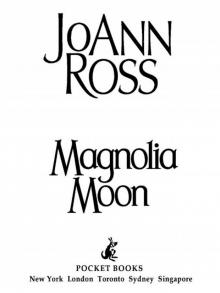 Magnolia Moon
Magnolia Moon Summer on Mirror Lake
Summer on Mirror Lake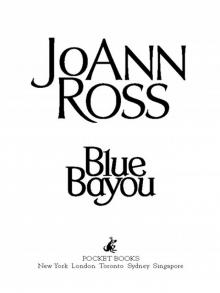 Blue Bayou
Blue Bayou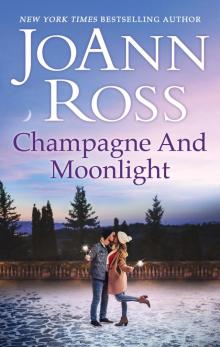 Champagne and Moonlight
Champagne and Moonlight No Regrets
No Regrets Long Road Home
Long Road Home Southern Comforts
Southern Comforts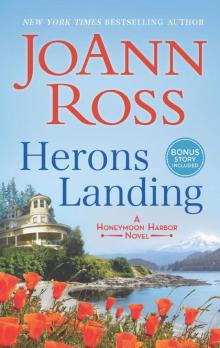 Herons Landing
Herons Landing Untamed
Untamed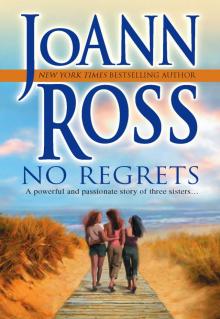 No Regrets (Mira Romance)
No Regrets (Mira Romance)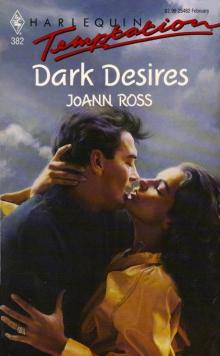 Dark Desires
Dark Desires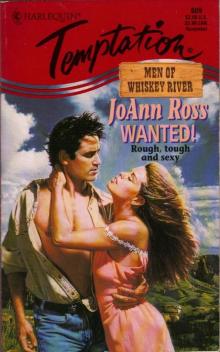 Wanted!
Wanted!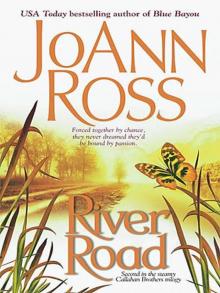 River Road
River Road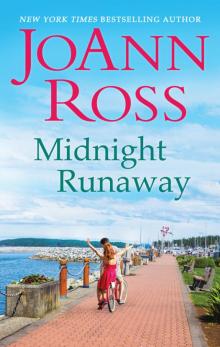 Midnight Runaway
Midnight Runaway The Long Way Back
The Long Way Back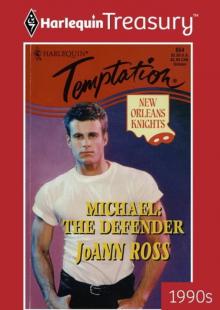 Michael: The Defender
Michael: The Defender Hot on the Trail
Hot on the Trail When I'm With You
When I'm With You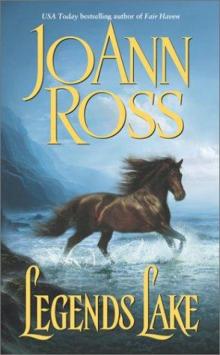 Legends Lake
Legends Lake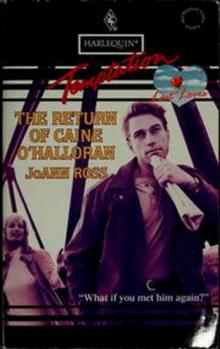 The Return of Caine O'Halloran
The Return of Caine O'Halloran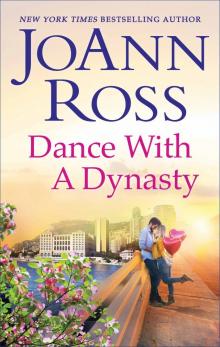 Dance with a Dynasty
Dance with a Dynasty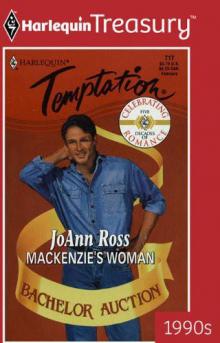 MacKenzie's Woman
MacKenzie's Woman Impulse
Impulse Sunset Point: A Shelter Bay Novel
Sunset Point: A Shelter Bay Novel You Again: A Shelter Bay novella (Shelter Bay series Book 8)
You Again: A Shelter Bay novella (Shelter Bay series Book 8)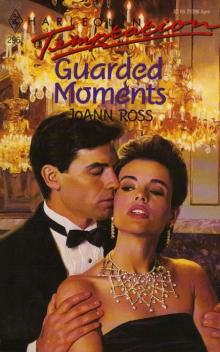 Guarded Moments
Guarded Moments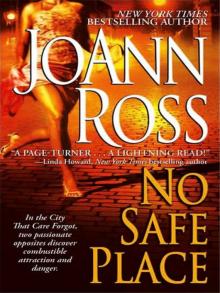 No Safe Place
No Safe Place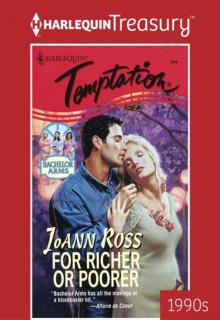 For Richer or Poorer
For Richer or Poorer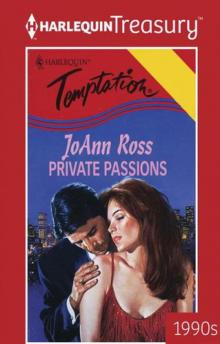 Private Passions
Private Passions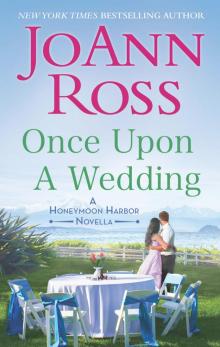 Once Upon a Wedding
Once Upon a Wedding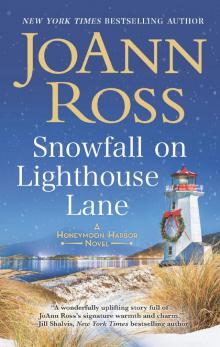 Snowfall on Lighthouse Lane
Snowfall on Lighthouse Lane Christmas on Main Street
Christmas on Main Street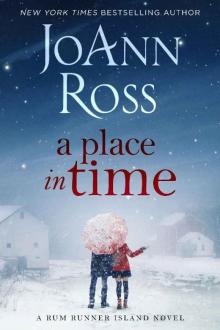 A Place in Time (Rum Runner Island Book 1)
A Place in Time (Rum Runner Island Book 1)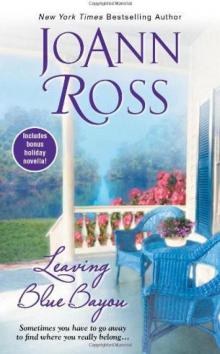 Leaving Blue Bayou
Leaving Blue Bayou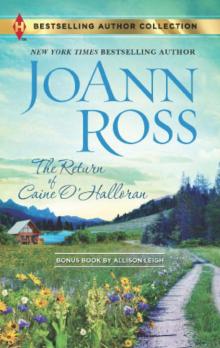 The Return of Caine O'Halloran: Hard Choices
The Return of Caine O'Halloran: Hard Choices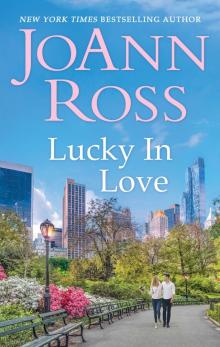 Lucky in Love
Lucky in Love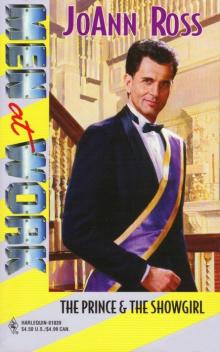 The Prince & The Showgirl
The Prince & The Showgirl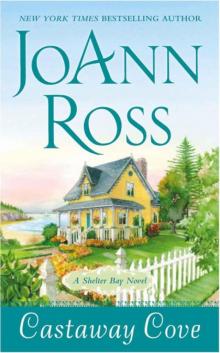 Castaway Cove
Castaway Cove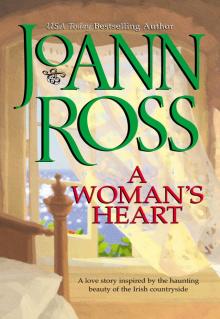 A Woman's Heart
A Woman's Heart One Summer
One Summer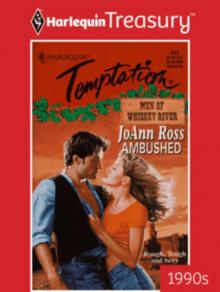 Ambushed
Ambushed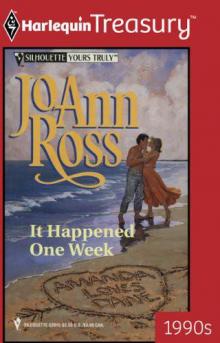 It Happened One Week
It Happened One Week Home by the Sea
Home by the Sea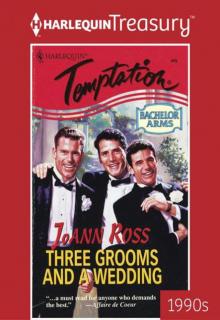 Three Grooms and a Wedding
Three Grooms and a Wedding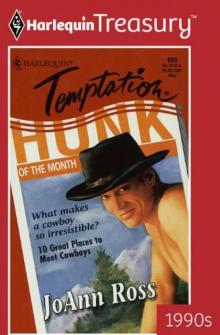 Hunk of the Month
Hunk of the Month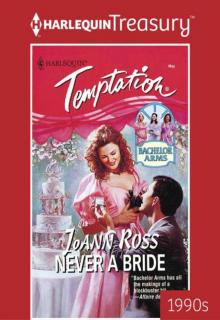 Never a Bride
Never a Bride Sun Kissed
Sun Kissed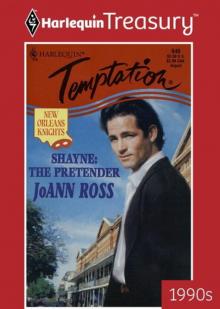 Shayne: The Pretender
Shayne: The Pretender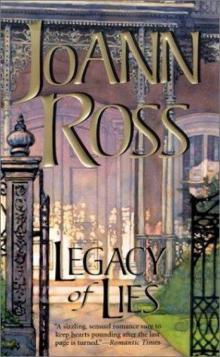 Legacy of Lies
Legacy of Lies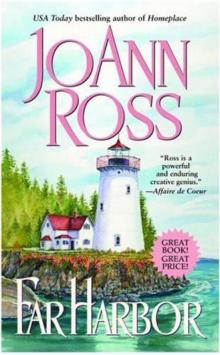 Far Harbor
Far Harbor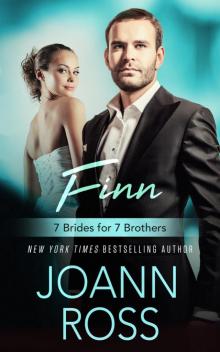 Finn
Finn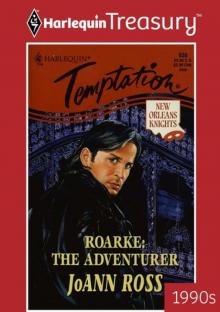 Roarke: The Adventurer
Roarke: The Adventurer I Do, I Do...For Now (Harlequin Love and Laugher)
I Do, I Do...For Now (Harlequin Love and Laugher) Briarwood Cottage
Briarwood Cottage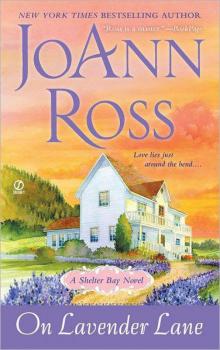 On Lavender Lane
On Lavender Lane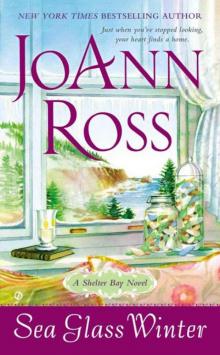 Sea Glass Winter
Sea Glass Winter River's Bend
River's Bend Christmas in Shelter Bay
Christmas in Shelter Bay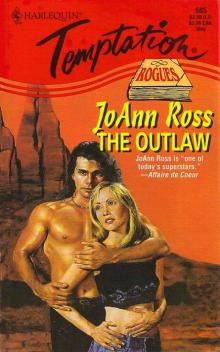 The Outlaw
The Outlaw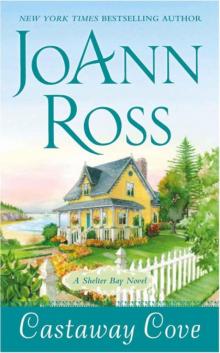 Castaway Cove (2013)
Castaway Cove (2013) Confessions
Confessions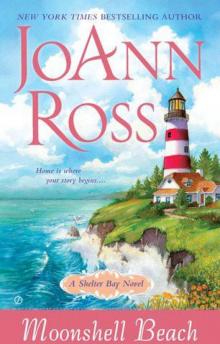 Moonshell Beach: A Shelter Bay Novel
Moonshell Beach: A Shelter Bay Novel